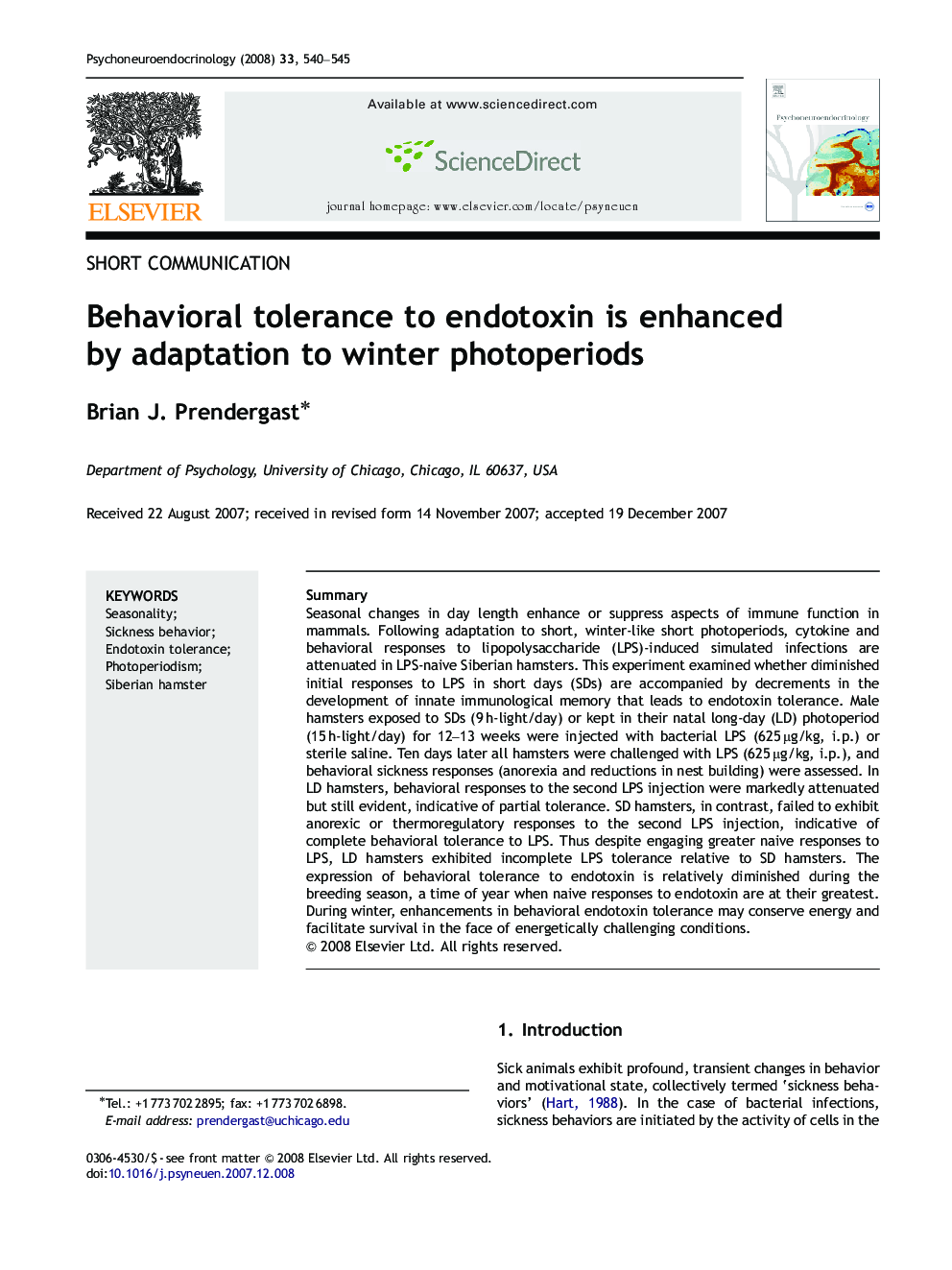| Article ID | Journal | Published Year | Pages | File Type |
|---|---|---|---|---|
| 336350 | Psychoneuroendocrinology | 2008 | 6 Pages |
SummarySeasonal changes in day length enhance or suppress aspects of immune function in mammals. Following adaptation to short, winter-like short photoperiods, cytokine and behavioral responses to lipopolysaccharide (LPS)-induced simulated infections are attenuated in LPS-naive Siberian hamsters. This experiment examined whether diminished initial responses to LPS in short days (SDs) are accompanied by decrements in the development of innate immunological memory that leads to endotoxin tolerance. Male hamsters exposed to SDs (9 h-light/day) or kept in their natal long-day (LD) photoperiod (15 h-light/day) for 12–13 weeks were injected with bacterial LPS (625 μg/kg, i.p.) or sterile saline. Ten days later all hamsters were challenged with LPS (625 μg/kg, i.p.), and behavioral sickness responses (anorexia and reductions in nest building) were assessed. In LD hamsters, behavioral responses to the second LPS injection were markedly attenuated but still evident, indicative of partial tolerance. SD hamsters, in contrast, failed to exhibit anorexic or thermoregulatory responses to the second LPS injection, indicative of complete behavioral tolerance to LPS. Thus despite engaging greater naive responses to LPS, LD hamsters exhibited incomplete LPS tolerance relative to SD hamsters. The expression of behavioral tolerance to endotoxin is relatively diminished during the breeding season, a time of year when naive responses to endotoxin are at their greatest. During winter, enhancements in behavioral endotoxin tolerance may conserve energy and facilitate survival in the face of energetically challenging conditions.
